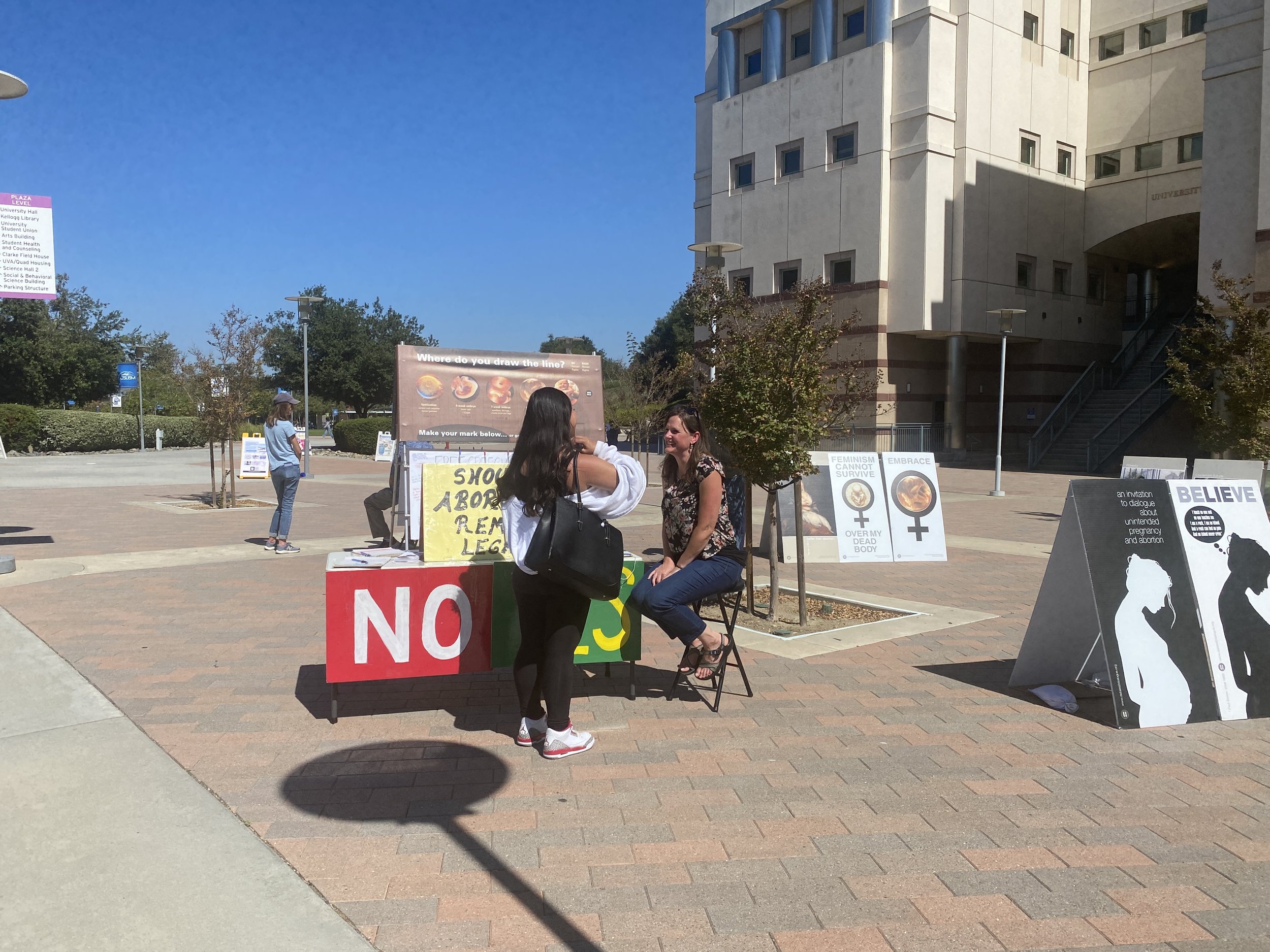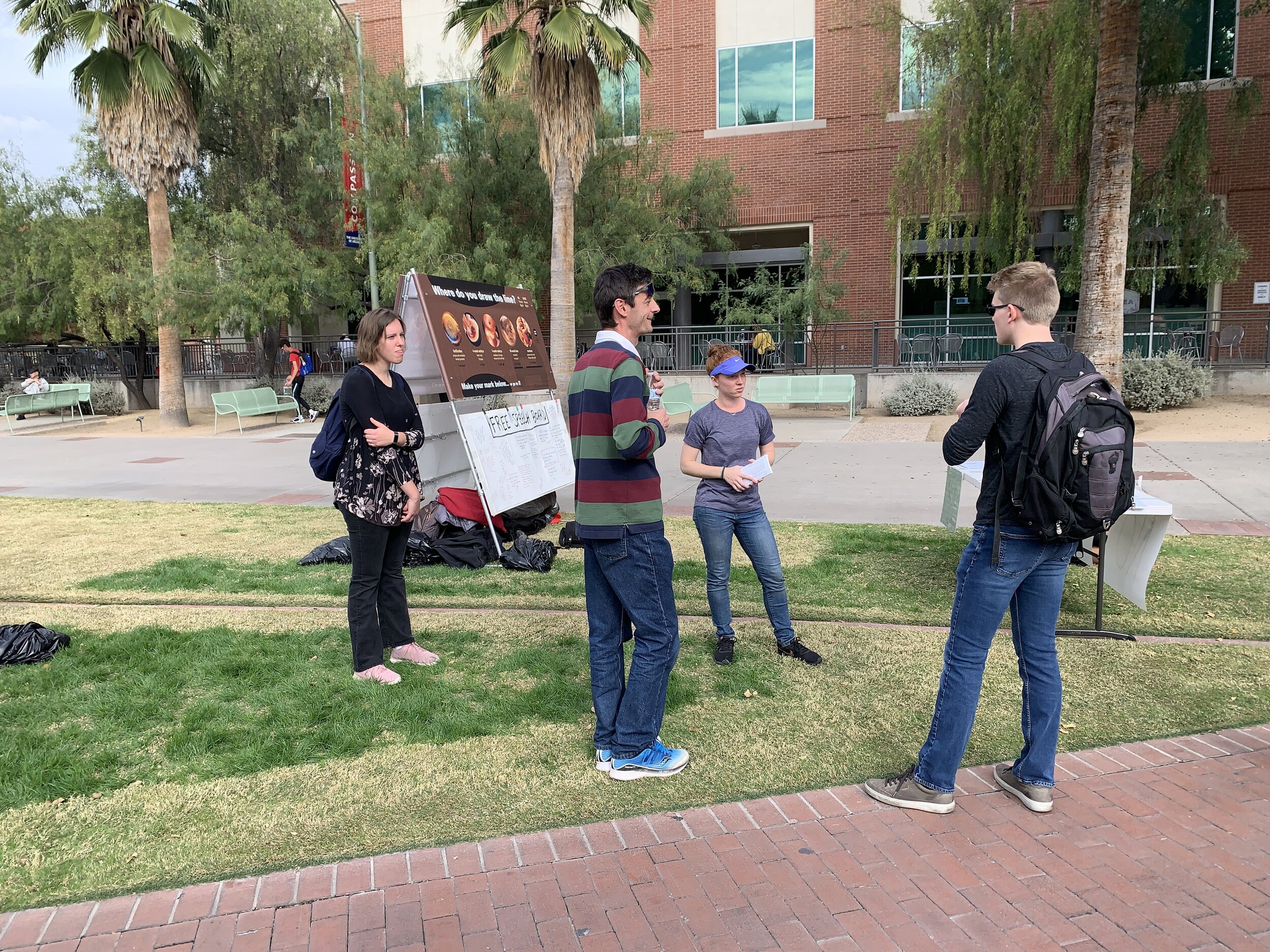These assertions silence many men. Other men react to these assertions with anger. How should we respond?
This can be frustrating, especially if the person seems dismissive or arrogant. Over the years I’ve tried to carefully consider my response, rather than getting caught up in the emotions and being defensive. I could snap back with a quick answer or cower in silence, but I strive instead to be both sensitive and substantive in my response.
The challenge is the same as with other pro-choice statements: Faithfully explain the pro-life perspective while still reaching the person. That takes empathy and humility. What an opportunity to love another person!
While passionately defending the preborn we must show genuine love for the woman who may consider abortion, and also, especially with this objection, the person who believes men shouldn’t have a voice.
This can unfold in many ways because we are trying to reach each unique person, but I believe the following progression has the best chance for ultimate success—reaching the questioner and answering the objection. As with any assertion or argument, I would encourage you to employ JFA’s “Three Essential Skills” of asking questions, listening, and finding common ground. In this case, though, the order in which you use those skills is very important for showing that you genuinely care and aren’t just trying to return fire with fire:
Listen to understand (be attentive and show them you care):
Find common ground when possible:
“I can’t fully understand or experience what women are going through.”
“I admit up front that many women have been hurt by men and many men have been unhelpful in the way they discuss this topic.”
“Can we agree it’s important for men to speak out against rape, abuse, and mistreatment of others?”
Ask questions (information/clarification) with a calm and genuine attitude:
“What do you mean when you say I shouldn’t be involved?”
“Do you mean I can’t hold a substantive opinion, or do you mean that I shouldn’t make laws about this?”
Ask questions (ask for evidence) with a calm and genuine attitude:
“Granted, I can’t fully understand what a woman in an unplanned pregnancy is experiencing, but why does that mean I can’t hold a strong opinion or involve myself in the discussion?”
“Why do you believe I should not take a stand?”
“Why would you silence me if I am trying to care for someone I believe is in need?”
Ask questions (challenge gently; notice challenging comes late in the process):
“How are my ideas insufficient simply because of my gender if many women make the same arguments?”
“There are many situations about which I don’t fully understand the circumstances, but clearly I should still help. Should I as a white man have marched in the civil rights movement or risked ridicule on Freedom Rides for the sake of people who were different from me who were being treated very harshly?”
This progression may help this person to see that her dismissal of men is an unhelpful tangent (resembling sexism) rather than a substantive argument. If so, she may then be willing to move on to discuss arguments about human rights, just as if she had been talking to a woman who had made the exact same points as you.
If not, you need to remain gracious anyway. You must continue to be both calm and confident.
I suggest using a carefully-worded story to respond to the “You’re a man!” dismissal. Consider this story from my friend and colleague Tim Brahm:
“You’re absolutely right. I am a man, and I will never get pregnant. I can do my best to sympathize with women who experience unplanned pregnancies, but I will never really know what they’re going through. Let me ask you kind of a weird question, bear with me. Imagine I go fishing at the lake. I’m having a great time fishing, and then I see her [pointing to a female pro-life volunteer] about twenty yards away. I notice that she is pushing her car into the lake. Well that’s weird, why would she do that? Then I look in the back seat, and I notice there’s a two-year-old child in the car. Now, I’m a man. I’ve never been pregnant. I’ve never been a mother. I will never know what she is going through. We could even change the scenario by making her child a newborn and saying that she has postpartum depression, something I as a man could never experience. But even though I can’t understand what she’s going through, shouldn’t I try to do something to save that kid?” (Read the rest of Tim’s helpful discussion in his November 5, 2015 post at the Equal Rights Institute blog.)
This carefully crafted story can help those with whom you disagree to realize that not only can men be advocates—they should be advocates. Why? Because the preborn are human beings like toddlers.
Psalm 82:3-4 and Proverbs 24:10-12 urge us to care for the weak. And 1 Corinthians 16:13-14 says, “Be watchful, stand firm in the faith, act like men, be strong. Let all that you do be done in love.” (ESV)
It stands to reason that men can engage this discussion, but the point is much stronger than that — we must! Men need to abound with intentionality, empathy, support, and sound arguments clothed with grace. We have to be alert and ready to serve, a compassionate and compelling voice in all our spheres of influence.














